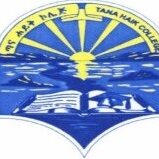Tana Haik College’s Institutional Journals play a vital role in advancing academic knowledge, promoting research, and encouraging scholarly discussions. The college is committed to creating an environment where students, faculty, and researchers can publish their work, share innovative ideas, and contribute to various academic fields.
Objectives of Institutional Journals
The main objectives of the institutional journals at Tana Haik College are to:
- Provide a platform for faculty, students, and external researchers to publish their research findings.
- Foster academic excellence by encouraging original research and critical analysis in various disciplines.
- Facilitate the exchange of knowledge and ideas across different fields of study.
- Promote interdisciplinary collaboration and innovation.
- Support the college’s mission to contribute to national and international scholarly discussions.
Areas of Focus
The institutional journals cover a wide range of academic disciplines, ensuring that research from various fields is represented. Some key areas of focus include:
- Business and Economics
- Research on management, finance, marketing, entrepreneurship, and economic development.
- Case studies on local and international business practices, financial analysis, and market trends.
- Science and Technology
- Articles on innovations in computer science, information technology, engineering, and natural sciences.
- Research on emerging technologies, software development, and scientific advancements.
- Social Sciences and Humanities
- Focus on sociology, psychology, education, and cultural studies.
- Analysis of social issues, community development, and policy-making.
- Health Sciences
- Research on public health, medical sciences, nursing, and healthcare management.
- Studies on health systems, disease prevention, and healthcare innovations.
- Environmental Studies
- Research on sustainability, environmental management, and conservation.
- Focus on climate change, natural resource management, and environmental policies.
Key Features of Institutional Journals
- Peer-Reviewed: All submissions undergo a rigorous peer-review process to ensure the quality, relevance, and accuracy of the research.
- Open Access: The journals are accessible to the public, allowing researchers, students, and professionals to benefit from the knowledge shared.
- Interdisciplinary: The journals encourage collaboration across different fields, promoting innovative and holistic approaches to research.
- Ethical Standards: The journals adhere to high ethical standards, ensuring that all published work is original, properly referenced, and free from plagiarism.
Contribution to the Academic Community
The institutional journals at Tana Haik College contribute to the academic community by:
- Encouraging Research: Providing an outlet for faculty and students to showcase their research fosters a culture of inquiry and innovation.
- Enhancing Reputation: Publishing high-quality research helps the college build its reputation as a center for academic excellence.
- Networking Opportunities: By collaborating with researchers and professionals, the journals help create networks that promote knowledge exchange and further research.
Submission and Publication Process
Researchers interested in publishing their work in Tana Haik College’s institutional journals can submit their manuscripts following a specific submission process:
- Submission: Authors submit their research papers, which must align with the journal’s guidelines on formatting, referencing, and originality.
- Peer Review: Submitted papers are reviewed by experts in the field to ensure quality, relevance, and contribution to the academic community.
- Revisions: Authors may be asked to revise their papers based on feedback from reviewers.
- Publication: Once the paper is accepted, it is published in the relevant journal and made available through the college’s library and digital platforms.

